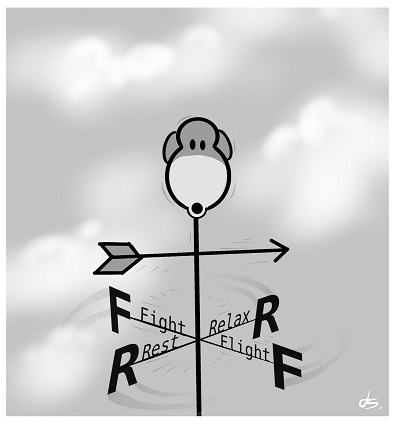Are You Feeling a Little Obsessive and Compulsive?
Are You Feeling a Little Obsessive and Compulsive?

Yesterday I received an email from a former client with the subject line HELP!! Six months ago, Angie came to me with contamination OCD. Obsessed with germs, Angie washed her hands and used hand sanitizer compulsively, avoiding touching everything from the door handles to the magazines and armrests in the waiting room of my office. (Just like we all are now.) Working together, using incrementally progressive exposure response prevention, Angie’s obsessions and compulsions faded, and satisfied, she ended therapy. Then came the Coronavirus and turned Angie’s world upside down!
The CDC is recommending the very behaviors Angie had conditioned herself away from. Her anxiety had spiked, she told me. She was afraid that all the gains she’d made would go down the drain. What could I say to help, not only Angie, but myself, and all of us who are obsessing over the Coronavirus, trying to protect ourselves and our loved ones, while our anxiety reels out of control?
As Angie knew from experience, and we’re all learning right now, germ prevention behaviors like hand-washing give only temporary relief from anxiety. So long as there’s the chance that we’ve missed a germ, our limbic system will continue to pump out fight-or-flight alarms. Angie didn’t want to go back to the downward spiral of stress she experienced with her OCD. She wanted to be able to rest and relax, despite the danger of contagion. As do we all. How can we have any peace of mind with so much uncertainty around us?
Here are the three steps I shared with Angie:
- Adopt an expansive mind-set. Since sheltering in place, social distancing and washing our hands can only slow down the spread of the virus among us as, we cannot be certain we as individuals will not get sick. The mind-set we want to have will allow for this: When I take reasonable precautions, and accept the uncertainty that remains, I can rest and relax.
- Resist urges to give in to certainty-seeking behavior. Angie was taking her temperature as many as six times a day, which isn’t recommended by the CDC. Every time she noticed a sensation of a sore throat or feeling warm, she felt anxious. Taking her temperature made her feel better for a while, until the next physical sensation made her anxious again. Angie was programming her limbic system to remind her, with fight-or-flight messages, to keep checking, what I call feeding the monkey mind. When we reinforce this reactive part of our brain, we are not only programing ourselves for more reactivity in the future, we’re decreasing our ability to tolerate uncertainty.
- Welcome our feelings of anxiety. One of the most powerful ways to retrain the limbic system to calm down is to remind ourselves it is okay to feel anxiety right now. When we open to negative emotions, we give them space to transform, just like clouds transforming themselves in a wide expanse of sky on a windy day.
Angie now has clear steps to follow so she doesn’t fall into the trap of obsession and compulsion. When she feels an urge to go beyond CDC guidelines—to try to be certain—she can choose to resist it, and welcome the emotions that are normal in this time of crisis. And when she is taking realistic precautions like washing her hands, wiping down surfaces with sanitizing wipes and social distancing, she can remind herself of her expansive mind-set, welcoming whatever uncertainty is there to exist. With these three steps, we can all train ourselves to rest and relax, even in the middle of a pandemic. It is a healthy thing we can do for ourselves, our loved ones, and our community.
For addition tips on how to cope with increased anxiety and Covid-19 go to Anxiety and Depression Association of America’s website.












